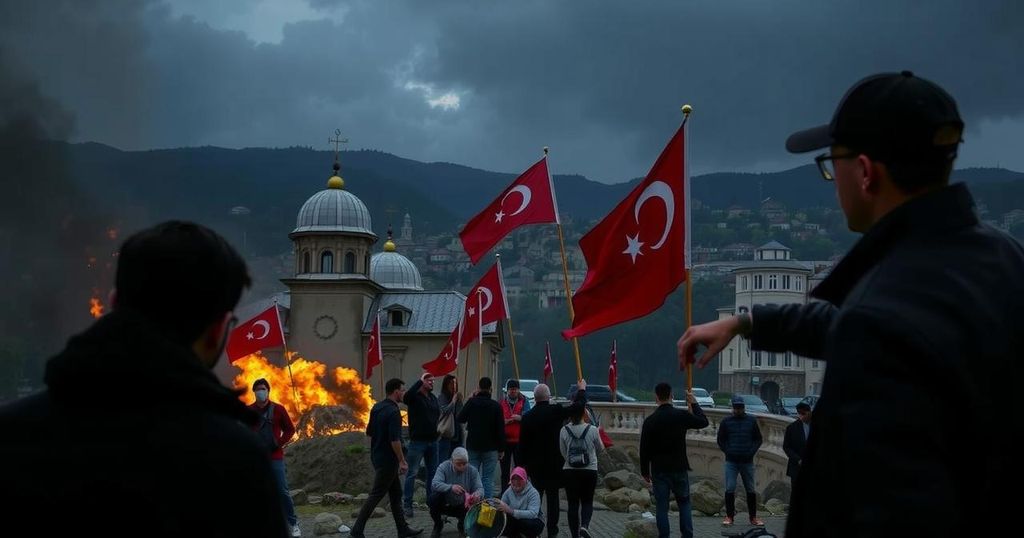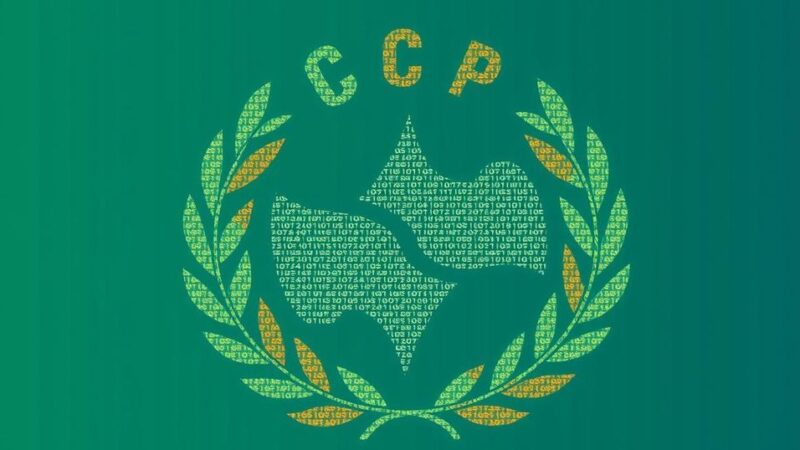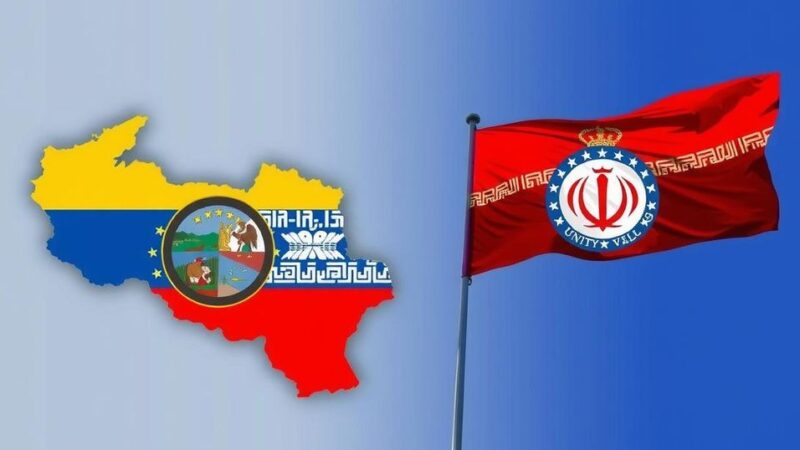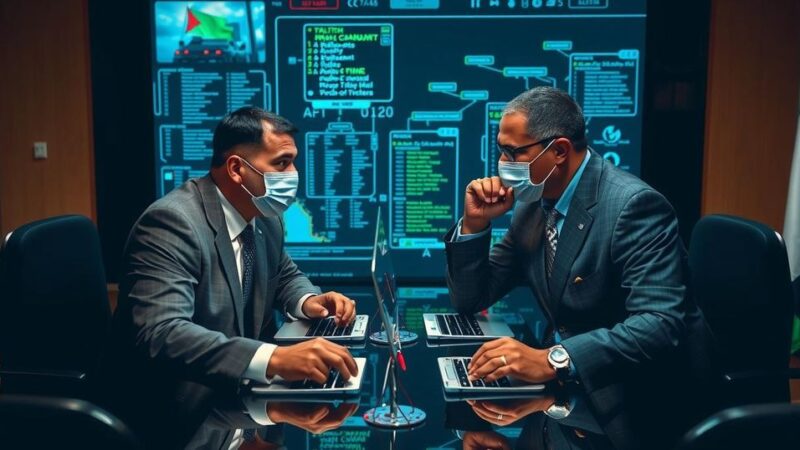Ankara is initiating a potential reconciliation with Kurds following a deadly attack claimed by the PKK on a defense firm. Devlet Bahceli, an ally of President Erdogan, proposed allowing imprisoned PKK leader Abdullah Ocalan to address parliament, indicating a shift toward dialogue. Observers note this may be linked to increasing regional tensions and internal pressures as public support for PKK engagement remains mixed.
In a significant development in Turkish-Kurdish relations, Ankara appears to be pursuing a reconciliation with the Kurdish population even in the wake of a violent attack attributed to the Kurdistan Workers’ Party (PKK). Last Wednesday, a bombing occurred at the headquarters of TAI, a state-owned defense company, resulting in five fatalities and 22 injuries. The PKK, which has a longstanding history of insurgent activity against Turkey, claimed responsibility for the attack, asserting that it had been premeditated and unrelated to Turkey’s recent diplomatic overtures towards the Kurdish community. Interestingly, these overtures were initiated by Devlet Bahceli, the leader of the ultra-nationalist Nationalist Movement Party (MHP) and a key ally of President Recep Tayyip Erdogan. He suggested that Abdullah Ocalan, the imprisoned PKK leader, could be permitted to address the Turkish parliament in a bid to renounce violence and dissolve the PKK. Ocalan has been incarcerated since 1999 on an island prison. Observers have noted that Bahceli’s peace talks with the Kurdish community underscore a strategic shift linked to the broader geopolitical turmoil in the Middle East. Hamit Bozarslan, a noted expert on Kurdish affairs, highlights that elements within the Turkish government are inclined to engage in dialogue with Kurdish factions, particularly in light of regional conflicts that might impact Turkey, Iran, Iraq, and Syria—countries with substantial Kurdish populations. The recent violent incident has not deterred Bahceli from promoting unity between Turks and Kurds, asserting that “Turks and Kurds must love each other; this is both a religious and a political obligation for both sides.” The timing of Ocalan’s first family visit since 2020, occurring mere hours prior to the bombing, has prompted speculation regarding its implications for his influence over the Kurdish movement. While Ocalan is deemed a significant figure capable of shaping political discourse, experts suggest that his prolonged absence from direct engagement with the PKK leadership presents formidable challenges in establishing a cohesive strategy. Public sentiment in Turkey remains largely skeptical regarding overtures to the PKK, with many observers indicating that such moves are motivated by the potential escalation of conflicts stemming from external pressures, particularly related to Israel’s military activities in Gaza and Lebanon.
Turkey’s relationship with its Kurdish population has long been fraught with tension, predominantly due to the PKK’s insurgency that has persisted since 1984. The PKK, designated as a terrorist organization by Turkey and many of its Western allies, seeks greater autonomy and rights for Kurds in Turkey. This background sets the stage for understanding the implications of Ankara’s recent attempts to reconcile with Kurdish groups, particularly in light of shifting geopolitical conditions in the Middle East, which could further affect Kurdish dynamics in neighboring countries. Amidst rising regional tensions, Turkey’s government faces pressures from various fronts, prompting a reassessment of its approach towards Kurds within its borders.
In conclusion, Turkey’s recent gestures towards reconciling with the Kurdish population signify a notable shift in its strategy, particularly following violent incidents linked to the PKK. Despite the complexities of Ocalan’s influence and skepticism among the Turkish public, Ankara’s maneuvers reflect a multifaceted response to both internal and external pressures. As Turkey navigates a delicate political landscape, the outcomes of these diplomatic efforts remain to be seen, especially amidst ongoing regional conflicts that could shape the future of Turkish-Kurdish relations.
Original Source: www.iraqinews.com






